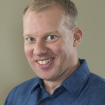You are here
When it comes to effective emergency response, there is no substitute for experience. As the COVID-19 pandemic took hold across the United States, the CDC Foundation hired a team of senior advisors with deep public health resumes to provide help wherever it was needed.
“The concept was to serve as a liaison between the Centers for Disease Control and Prevention (CDC) and states,” said Dr. Dale Morse, one of 10 senior advisors brought on board by the CDC Foundation since the outbreak began to help coordinate needs. “That involves working to build capacity with community-based organizations and public health systems to address COVID-19 needs the Foundation might be able to help with.”
A physician epidemiologist who spent 30 years at the New York State Department of Health and a decade with CDC, Morse brings a wealth of public health experience to his role. As a liaison with public health officials in New York State, New York City, New Jersey, Puerto Rico and the Virgin Islands, Morse is positioned to quickly address delays or gaps that hinder state health systems and community-based organizations within his region.
Dr. Dale Morse (left)
A contact tracer at work as part of the COVID-19 response
Kathy Cahill, MPH (left)
One such example occurred in early June 2020 when Morse was contacted by health officials in New York State. Desperate to hire more than 6,000 contact tracers, officials understood they had to wait 30 days to spend millions of dollars in grant money earmarked for the purpose. Through his role as a Foundation advisor, Morse helped the public health department navigate this need and was able to clarify the funding question, which facilitated freeing up funds within 24 hours.
It was an experience familiar to fellow advisor Kathy Cahill, MPH, who covers the Pacific Northwest through her role with the CDC Foundation. With a rich background in public health at both the national and international levels, Cahill says she worked closely with the Foundation in her years in Atlanta with CDC and appreciates the speed and adaptability the Foundation brings to their projects.
“They are a very powerful voice for public health, and they do amazing work, so I’m happy to be working with them,” Cahill said.
Responsible now for liaising with public health officials in Alaska, Idaho, Oregon and Washington State, Cahill says her role requires flexibility as needs continue to change. As an example, public health departments working to support the needs of community-based organizations are now focused on contact tracing, school reopening and vaccine planning. This requires public health departments to continue the work of surveillance, case investigations and contact tracing and add more staffing and capacity to address technical support to schools and planning for vaccination programs.
“Staff in state and local health departments are stretched in responding to COVID-19 and the CDC Foundation’s efforts to support temporary surge staff in state, local and tribal jurisdictions has been very timely in filling gaps and expanding jurisdictions’ capacity,” said Cahill.
The complexity and challenges that health jurisdictions face are often overwhelming at times. I hope that the role we play can help identify critical gaps and support those that are most needed.
The additional staff has extended capacity in many different parts of the response, including contact tracers for hotspots, nurses who can support long-term care facilities with training and epidemiologists and informatics experts who are able to analyze and respond faster to data and trends.
“The complexity and challenges that health jurisdictions face are often overwhelming at times,” said Cahill. “I hope that the role we play can help identify critical gaps, and through the CDC Foundation philanthropy we can support those that are most needed.”
For both Morse and Cahill, their roles as CDC Foundation senior advisors allow them to combine their deep experience in public health with the speed and flexibility the Foundation brings to emergency response. As a direct link to both the Foundation and CDC, Morse says, his role as a senior advisor allows him to help close vital gaps in public health resources when and where those resources matter most—one of the most critical roles the Foundation plays in advancing the mission of CDC and public health more generally.
Morse has worked closely with communities to address critical needs, such as working in New Jersey to acquire diagnostic test kits to expand testing and in New York to support the surveillance of the COVID-19 antibody levels in new mothers by testing newborn screening samples.
“It has been great working with the donors to help address these gaps in communities,” Morse said. “We’ve been technical advisors to help get resources within our jurisdictions, so that’s been very rewarding.”
Part of the funding for efforts described in this article was supported by Grant or Cooperative Agreement number NU38OT000288, funded by the Centers for Disease Control and Prevention (CDC). Its contents are solely the responsibility of the authors and do not necessarily represent the official views of CDC or the Department of Health and Human Services.
